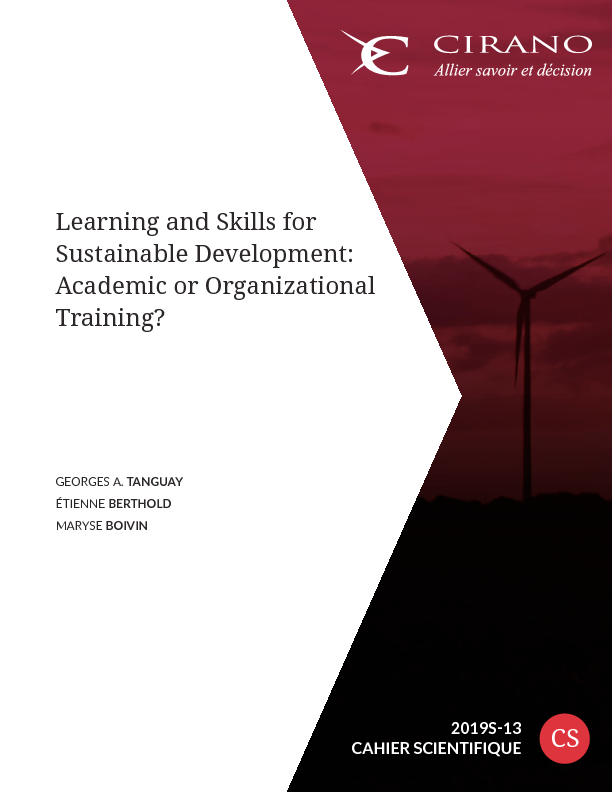Learning and Skills for Sustainable Development: Academic or Organizational Training?
Organizational sustainable development know-how is necessary to meet current environmental, social and economic challenges. This article follows the Education for Sustainable Development Report questioning which skills are currently in greatest demand by employers with regards to sustainable development. Aiming to better understand the duality (complementarity and substitutability) of sustainable development skills, depending on whether they are acquired through academic education or within an organization, this paper analyzes the links between the sustainable development skills sought by an organization and 1) the sustainable development actions it actually carried out, as well as 2) explanatory factors specific to the company. Based on a questionnaire survey conducted in May 2016 with 561 respondents from organizations in the province of Quebec, variables of interest were identified and measured with regards to sustainable development skills, in-house training offerings and the valorization of academic learning. The collected data allowed for the comparison of these elements with the sustainable development programs adopted internally as well as the characteristics of the various organizations (e.g. size, sector). This comparison was accomplished through a list of concrete actions, notably using chi square analysis, factor analysis, correlation and mean comparisons. The study makes four specific contributions: 1) Sustainable development skills are valued by many organizations, most often through a complementary valorization of both in-house (“internal”) training offerings as well as academic study; 2) Organizations that value the acquisition of skills in sustainable development in a complementary way stand out as the most active in their approach to sustainable development; 3) The exclusive valorization of internal sustainable development training underpins a certain level of organizational engagement with these topics, whereas the exclusive valorization of academically obtained skills reveals a weaker concretization of sustainable development, and therefore a need to compensate for a gap and 4) Gaps are highlighted between actions and the valorization of sustainable development skills, according to the characteristics of the organization.




